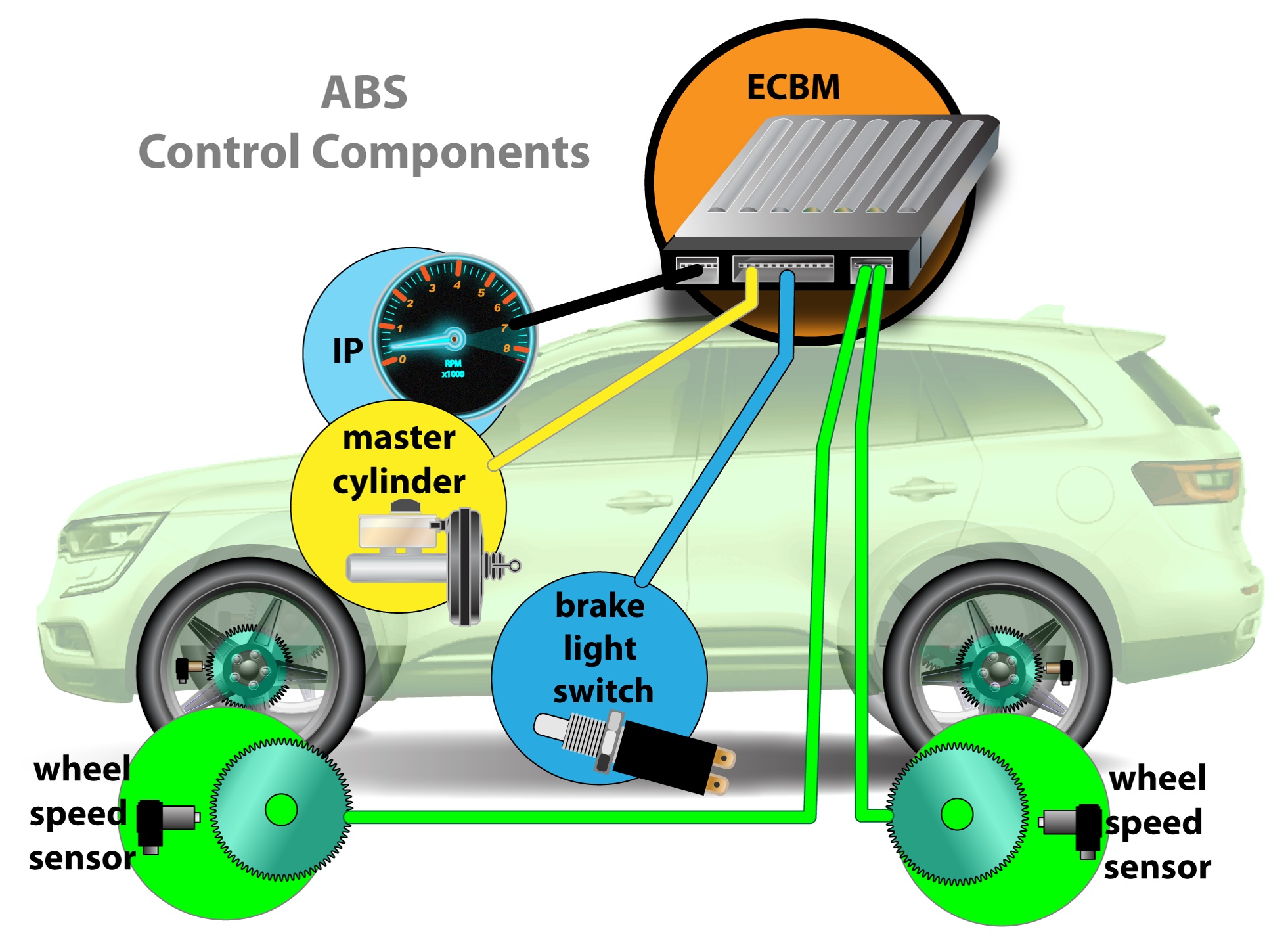ABS, or Anti-Lock Braking System, is an essential safety feature in modern vehicles that prevents the wheels from locking during sudden braking. ABS helps maintain control and stability, reducing the risk of skidding or losing control of the vehicle. However, ABS also requires regular maintenance to ensure it functions correctly and prevents potential malfunctions. This blog post will explore the importance of maintaining ABS and provide insights into its workings, history, and recommendations for preventing malfunctions.
ABS Maintenance: Ensuring Safety on the Road
ABS malfunctions can pose significant risks to drivers and passengers. Malfunctioning ABS can result in extended braking distances, reduced control during slippery conditions, and increased chances of skidding. Therefore, it’s crucial to address any potential issues promptly to maintain optimal vehicle safety.
The Importance of ABS Maintenance
Regular ABS maintenance involves inspecting and cleaning the ABS sensors and components, checking for any loose connections or damage, and testing the system’s functionality to ensure it engages and disengages properly. By addressing these maintenance aspects, drivers can reduce the likelihood of ABS malfunctions and enhance overall vehicle safety.

ABS: A Historical Perspective
Anti-lock braking systems have a rich history. In the 1930s, early ABS systems were introduced, but their complexity and cost limited their widespread adoption. In the 1970s and 1980s, technological advancements made ABS more affordable and reliable, leading to its gradual integration into production vehicles.
The Hidden Secrets of ABS
ABS functions by utilizing wheel speed sensors to detect any impending wheel lock during braking. When a lock is detected, the ABS control module rapidly modulates the brake pressure to the affected wheel, allowing it to maintain traction and prevent skidding. This intricate interplay ensures controlled and stable braking.

Recommendations for ABS Maintenance
To maintain optimal ABS performance, regular inspections are advised. Drivers can visually check for any visible damage or loose connections in the system. Additionally, professional inspections by qualified mechanics are recommended to thoroughly assess the ABS components and identify any potential issues, including sensor malfunctions or electrical problems.
ABS Malfunctions: Diagnosis and Resolution
If an ABS malfunction is suspected, prompt diagnosis is essential. Mechanics typically employ diagnostic tools to identify the cause of the malfunction, whether it’s a faulty sensor, a hydraulic issue, or an electrical problem. Once the cause is determined, the mechanic will recommend the appropriate repairs or replacements to restore the ABS functionality.

Tips for Preventing ABS Malfunctions
Proactive maintenance is key to preventing ABS malfunctions. Regular brake inspections, including pad and rotor checks, can help identify any potential issues that could affect ABS performance. Additionally, avoiding aggressive driving habits, such as hard braking or sudden stops, can reduce wear and tear on the ABS system, extending its lifespan.
Fun Facts about ABS
ABS technology has undergone significant advancements over the years. Modern ABS systems incorporate advanced features such as Electronic Brakeforce Distribution (EBD) and Cornering Brake Control (CBC) to optimize braking performance in various driving conditions.
How to Maintain ABS
Proper ABS maintenance involves regular inspections and cleaning of the ABS sensors and components. Additionally, ensuring the brake fluid is clean and at the proper level is crucial. Mechanics recommend flushing and replacing brake fluid periodically to prevent contamination and maintain optimal system performance.
What if ABS Malfunctions?
In the event of an ABS malfunction, it’s essential to seek immediate professional assistance. A malfunctioning ABS can significantly impact braking performance, increasing the risk of accidents. Mechanics will diagnose the issue, identify the faulty components, and recommend the necessary repairs or replacements.

Listicle: Steps for ABS Maintenance
1. Conduct regular visual inspections for visible damage or loose connections in the ABS system.
2. Schedule professional inspections by qualified mechanics to thoroughly assess ABS components.
3. Ensure regular brake inspections, including pad and rotor checks, to identify potential issues affecting ABS performance.
4. Avoid aggressive driving habits, such as hard braking or sudden stops, to reduce wear and tear on the ABS system.
5. Regularly flush and replace brake fluid to prevent contamination and maintain optimal system performance.
Question and Answer
Q1: How often should I inspect my ABS system?
A1: Regular visual inspections can be conducted monthly, while professional inspections by mechanics are recommended annually or as per the manufacturer’s guidelines.
Q2: What are the warning signs of an ABS malfunction?
A2: Warning signs include an illuminated ABS warning light on the dashboard, reduced braking performance, or the ABS system not engaging during braking.
Q3: Can I repair an ABS malfunction myself?
A3: ABS repairs require specialized knowledge and equipment. It’s highly recommended to seek professional assistance from qualified mechanics to ensure proper diagnosis and repairs.
Q4: How can I prevent ABS malfunctions?
A4: Regular maintenance, avoiding aggressive driving habits, and addressing any brake-related issues promptly can help prevent ABS malfunctions and extend the system’s lifespan.

Conclusion of 5. Maintaining Anti-Lock Brakes: Preventing Malfunctions
Anti-lock braking systems are essential safety features in modern vehicles, enhancing stability and control during braking. Regular maintenance, including inspections, cleaning, and professional assessments, is crucial to prevent malfunctions and ensure optimal ABS performance. By adhering to recommended maintenance practices and addressing any issues promptly, drivers can increase the safety and reliability of their vehicles.
